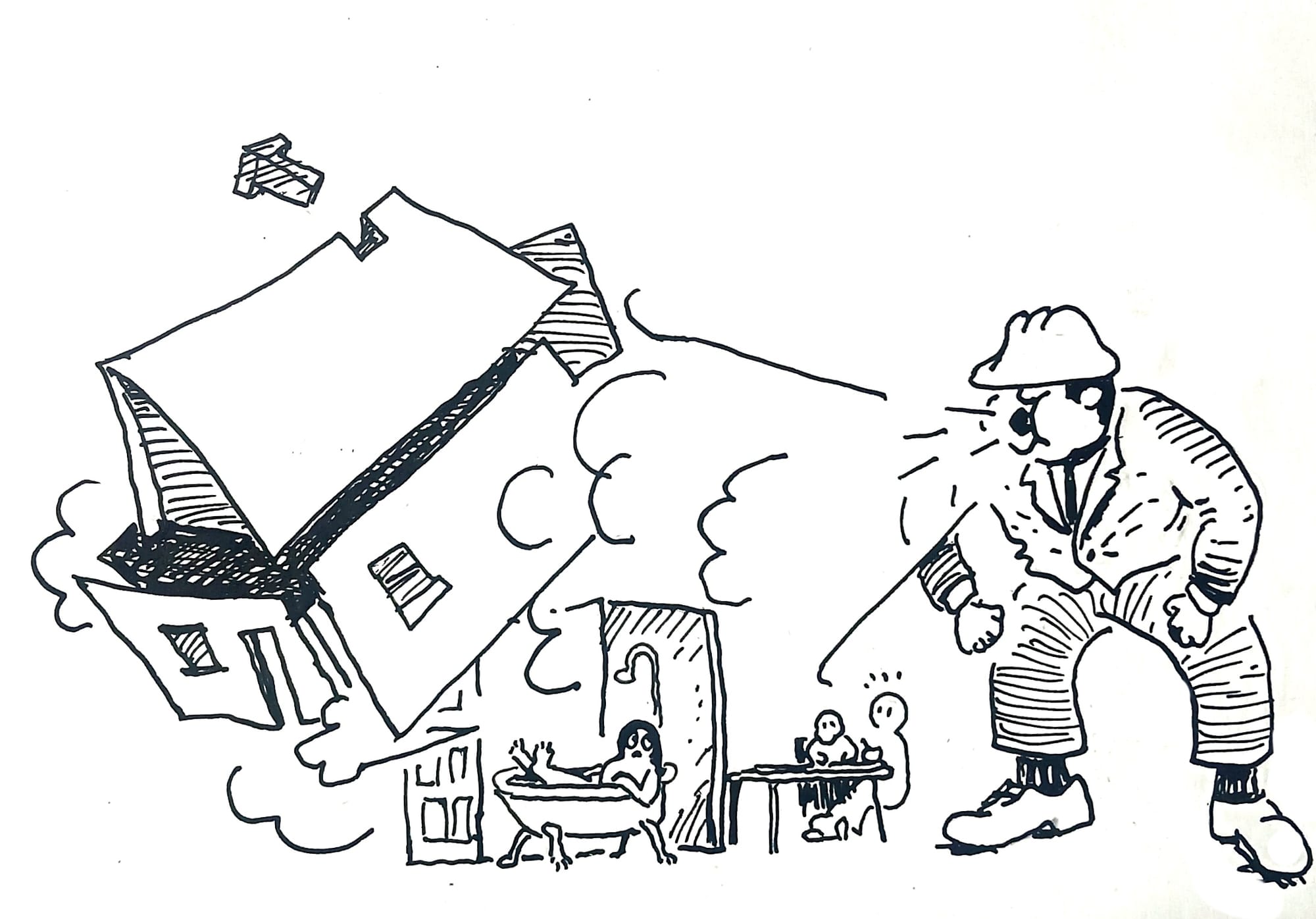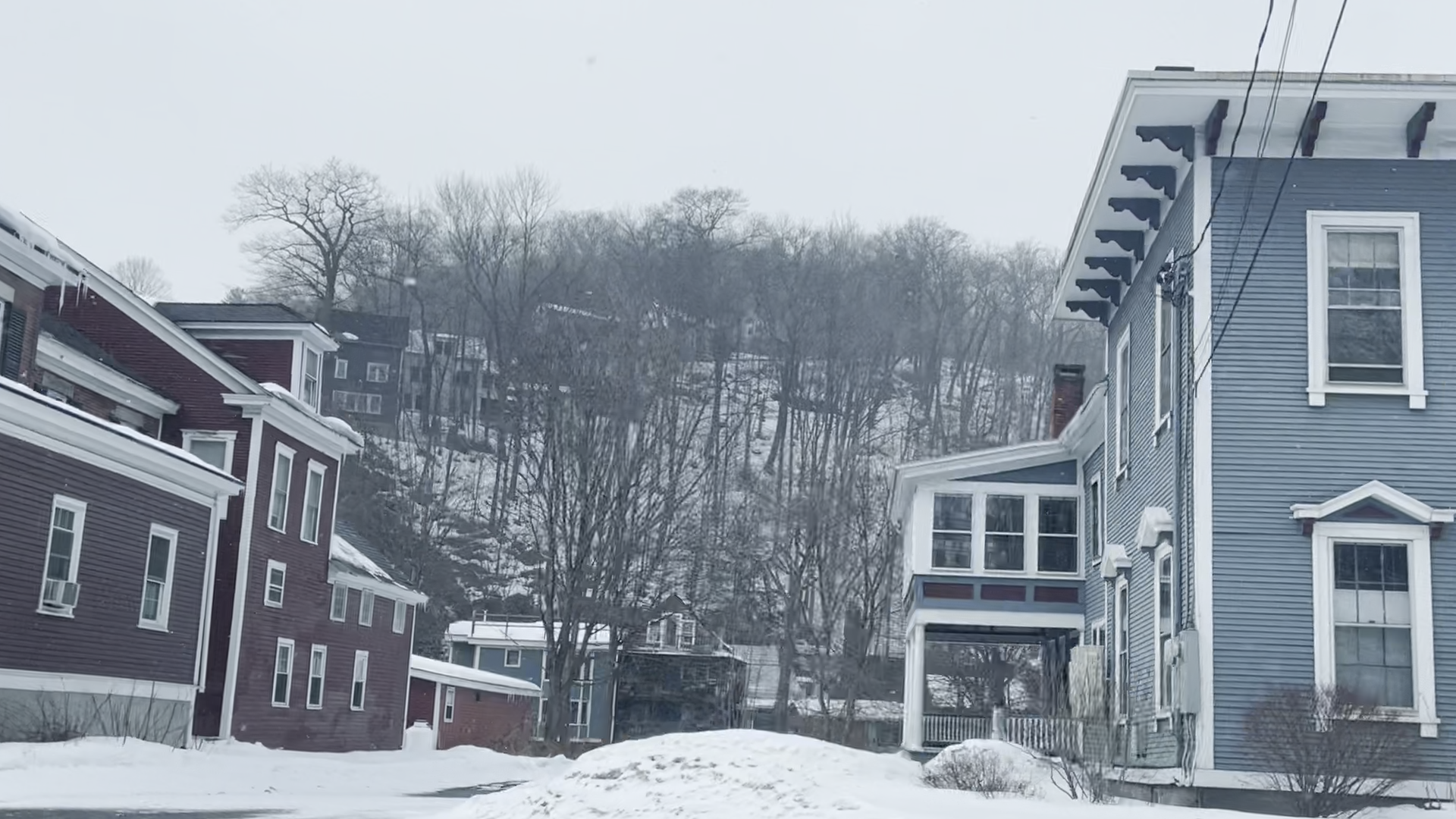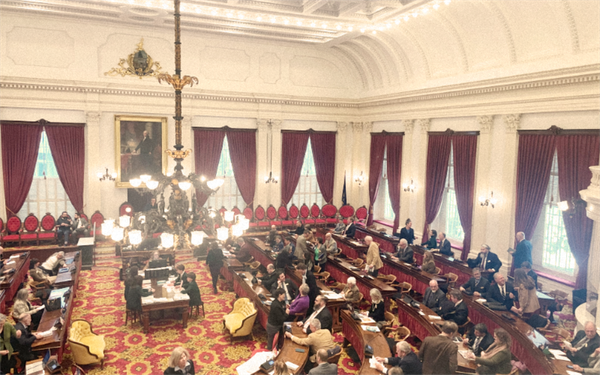A Deep Dive into Vermont Housing (or Lack Thereof)
Governor Scott and special interest groups hope to facilitate housing growth through zoning reform. But can we trust the market to benefit all Vermonters?

On Wednesday, February 19th, Governor Scott rolled out his plan for increased zoning reform, hoping to facilitate housing growth in the state of Vermont.
The administration’s proposal positions itself into a nationwide conversation about zoning reform and housing construction. But making changes to Vermont's zoning laws is an old and controversial problem, racking up as many failures as it has successes in recent years. Proposed solutions are often confusing and complex.
In this article, I aim to break down this issue from both a local and national level. I’ll explore the history of Vermont's housing market, our Act 250 zoning laws, recent reforms to our zoning laws, and why the Governor and special interest groups are calling for further zoning deregulation. I'll also explain the shortfalls and potential hazards of deregulation.
Finally, I'll make the argument that zoning deregulation must come with legal protections for Vermonters. If the state moves forward with further zoning reform, our elected officials should work to uphold Vermonters' rights to accessible housing above the rights of developers and investment interests.
Most Vermonters I talk to are painfully aware that we're experiencing a housing crisis.
Lack of affordable housing is blamed for many of our demographic issues, including our difficulties in attracting and maintaining young workers. These demographic issues stretch our existing tax base and reduce our access to necessary services.
The lack of housing is also frequently blamed for the homelessness crisis. However, as Vermont Political Observer columnist John Walters has pointed out, discussions of Vermont's long-term housing issues are often used to distract from the very pressing needs of the unhoused population. This is a mistake we should be careful to avoid. Vermont's lack of emergency and protective shelters requires a more speedy solution than zoning reform can offer. As Walters writes, "The housing crisis is going to be a long-term grind, a matter of changing public policy in ways that encourage housing. The homelessness crisis is crushingly urgent."
So to be clear: in this article, I'm diving into the specific issues that make Vermont's housing market so challenging.
For a succinct intro to the issue, you can check out this Vermont Public briefer from 2024. It goes into the big picture economic trends over the last five years that have brought Vermont to where we currently are. The pandemic had a significant impact, driving many low-income families into homelessness for the first time. Simultaneously, in 2021, Vermont saw one of the highest inward migration events it's experienced in decades.
This influx of new inhabitants drove demand for housing, which jacked up prices beyond the reach of working-class Vermonters – the ones participating in the often low-wage Vermont employment economy, rather than gaining income via higher paying remote work. Pandemic inflation ballooned the price of building materials and made new build and design/build housing equally prohibitive. (As one of the oft-mentioned low-income Vermonters who tried and failed to buy or build a house in the shock waves of the pandemic, I can confirm.)
But we can't discuss Vermont’s housing crisis without diving into one of the state’s most debated policies: Act 250.
Act 250 is Vermont's sweeping land use and development policy, which dates back to the 1970s. The legislation was drafted at a time when Vermont was experiencing a huge boom in development due to the construction of the interstate highways I-89 and I-91. In its original form, Act 250 sought to preserve the bucolic character of the state and maintain local control over large development projects through the creation of nine regional zoning commissions.
The law is often credited for maintaining Vermont's unique qualities, (ensuring the state doesn't end up looking and feeling, for instance, like Connecticut). But it also creates a large amount of red tape for the construction of any real estate project over 10 acres or 10 housing units in size. This slows the process of new construction, and can de-incentivize development.
Due to changing economic conditions and a high demand for housing, Act 250 has long been due for an overhaul. This reform, now known as Act 181, was finally passed in 2024. But it didn't make its way into law without a fight. The bill was seen by many as a compromise between deregulation (which Scott champions) and conservation. The reform rolls back Act 250 rules in existing development centers while shoring up protections for fragile ecosystems.
When the bill crossed his desk last year, Scott vetoed it, saying it didn't go far enough in repealing Act 250 regulations and environmental protections. He also argued that its focus on existing development centers would leave rural communities behind. The veto was then overridden by the Democratic super majority in the house, and the bill became law.
This is the fraught history into which Scott is introducing his new housing bill.
Scott wants to expand the exemptions in Act 250 to apply to more rural communities. Currently, the exemptions mostly apply to designated downtowns and villages. In Scott's proposal, existing areas already served by water and wastewater, regardless of whether they're located in population centers, would also be eligible for some deregulation. These de-regulations reduce the amount of local control and oversight into development projects.
Scott also hopes to make it more difficult for development dissidents to block projects. Currently, a neighbor in the vicinity of a proposed development has some recourse to challenge the project in court. But according to Scott's housing commissioner Alex Farrell, such appeals will be limited unless a complainant can prove undue harm.

Local control is a contentious issue in Vermont.
One could argue it's the root of many of Vermont's policy debates. It's currently a talking point in the clash over education, as local communities resist consolidation of school districts and the loss of their village schools, despite the fact that some consolidation is likely necessary for the longevity of Vermont's education system.
But issues of local control are also central to housing debates. If you're not familiar with the acronym NIMBY, or Not In My Backyard, it's a common phrase used to describe arguments over development and land use. In these debates, existing residents will often demand that controversial projects (such as transportation infrastructure, cell towers, low-income housing units, or industrial plants) be built somewhere else -- just not in my backyard. This attitude has a long history of upholding environmental racism, especially in urban areas, where already marginalized communities are forced to bear the burden of undesirable or actively harmful development, given that more privileged communities are more likely to have their interests represented.
However, NIMBY-ism plays out in rural areas as well. Conservationists and environmental advocates are often characterized as NIMBYs, although in recent years, many environmental groups have diversified and now work to acknowledge the links between conservation and environmental equity and justice. On a more individual level, a rural NIMBY may prioritize having their pristine view unspoiled, and oppose housing units that might present an eyesore.
There's a good argument to be made for redistributing the power that local communities have over the construction of essential projects. For one, many zoning laws were initially put in place to uphold racist and classist segregation and disenfranchisement. I've seen firsthand the influence that a few, often wealthy, often non-working Vermonters can have over the enforcement of zoning and other local policies, often to the detriment of more vulnerable community members. Local zoning boards also sit in a strange gray area of governance. As explained in a thorough analysis from the Harvard Law Review:
"On its surface, the process of passing zoning ordinances is legislative. It often involves public hearings conducted at least in part by elected officials or political appointees who serve at the will of the mayor. But zoning, even at the planning stage, often deals with small-scale classifications and reclassifications that are as much decisions about individual rights as they are about future community land use. This has led many observers and some courts to characterize zoning as an exercise of judicial power, and others to suggest that planning commissions defy categorization at all within the tripartite separation of powers.”
In response to these issues, a nationwide movement called YIMBY, or Yes In My Backyard, has recently gained momentum. The YIMBY movement boasts members from across the political spectrum, from leftist social advocates to small government libertarians. It considers itself pro-housing, advocating for denser cities and increased housing production as a means of correcting the current injustices and failures of the housing market. It often presents a "trust the market" approach, arguing that zoning reform will lead to increased housing availability, which will naturally work to stabilize prices.
You could say the reductions to Act 250 regulations which passed in the legislature last year are a success of YIMBY-ism. You could also say that Scott's new policy proposals push for an expansion of the YIMBY attitude. Perhaps YIMBY-ism is the solution we've been looking for, a bi- or even tri-partisan (Republican-Democratic-Progressive) plan to address Vermont's housing failures and create long term stability. Land use reform could certainly offer successes in bolstering Vermont's housing stock and access. After all, loosening regulations means we build more houses, more houses means lower prices, lower housing prices lead to more long-term workers, more workers are more tax payers, more tax payers allow for more services.
Problem solved, right?
Unfortunately... it's not quite as simple as that.
There's another player in Vermont's housing debates, new to the statehouse in the 2025 legislative session: a recently-formed interest and lobbying group called Let's Build Homes.
Let's Build Homes launched officially in January of this year and has been active in the session, giving press conferences and testifying in front of legislative committees. For the most part, Governor Scott's housing policies seem to align with the agenda of Let's Build Homes. In an article for Vermont Public profiling the group, Carly Berlin writes that the messaging of Let's Build Homes "mirrors that of the nationwide YIMBY (or “Yes in my backyard”) movement, made up of local groups spanning the political spectrum that advocate for more development."
The most recognizable member of Let's Build Homes' steering committee is Miro Weinberger, the former Democratic mayor of Burlington, who served in the office for twelve years. Before becoming Burlington's mayor, Weinberger was a property developer. He often prioritized housing growth in his campaigns and policies, but he's not exactly known for his successes in transforming Burlington's housing economy.

Most notably, he spearheaded the re-development of the now infamous CityPlace, a plan to rebuild Burlington's old mall into a mixed-use high-rise in the city's downtown. Although the mall was demolished in 2017, the project is still not completed. Last year, project developers announced they were reducing the number of planned housing units in the high-rise. The space will instead be allocated to hotel rooms. According to project coordinators, this change was necessary in order to guarantee financial investment from development partners.
The CityPlace saga is a pretty good demonstration of how downtown development doesn't automatically increase housing accessibility. It also points to the main shortcoming of YIMBY's focus on deregulation and supply-side economics: zoning deregulation doesn't address the power and priorities of the financial interests who profit from the housing market.
“Just because private developers can build housing does not mean they will.”
– “The Market Alone Can’t Fix the U.S. Housing Crisis,” Harvard Business Review
This issue is thoroughly explored in a Harvard Business Review article titled: "The Market Alone Can't Fix the U.S. Housing Crisis." The article points to research from the Urban Institute, illustrating that zoning deregulation led to a mere 0.8% increase in housing in the three to nine years following reform. To quote the Harvard piece:
"The problem, generally, is that building housing is just one way to profit from a piece of land, and zoning reform tends to increase land values. The price of an asset, including land, is its discounted future profit streams. So, if land with a three-unit apartment building today is upzoned for mixed-use developments, that widens its range of possible uses and raises expected profits, making it more expensive today. In many places, expectations of inadequate profits — not zoning — appear to be the primary constraint on further housing construction by the private sector, as profit-motivated corporations are reluctant to build." [emphasis my own]
I'll try to explain that using different language: housing isn't an infinitely reproducible product, because housing requires land to build on, and land is a finite resource. When zoning regulations are decreased to allow for density, the value of land often increases. This is because developers and investment firms can make more money off of a high-rise building than they can off a single home. As the article goes on to explain, zoning deregulation sometimes results in an eviction of current tenants and businesses – a loss of housing and housing justice for existing residents – due to the hypothetical profit to be made for developers, which they may not capitalize on for years.

Zoning deregulation also does not prevent developers and property owners from buying up a large share of high-value or high-demand housing in a community and having more control over the market as a result. Residents of Montpelier may find this phenomenon familiar, as many live in properties owned by Montpelier Property Management, under the care of Jeff Jacobs. Jacobs now lives in Florida while still owning much of Montpelier's downtown. If you're in Burlington, you might have lived in multiple rental units owned by the Bissonette family, ShoeLess Management, or another local slumlord.
Of course, this is a nationwide issue as well. It’s been garnering more attention lately, with investment firms such as Invitation Homes shown to own at least 20-25% of all the inexpensive single-family homes in cities like Atlanta, Charlotte, and Phoenix – the very homes that would be most accessible to lower and middle-income households and families.
There are even more concerning reports about the housing market in our increasingly algorithmic world. Collusion between landlords on a nationwide level was recently exposed by a ProPublica investigation and a subsequent DOJ lawsuit. The lawsuit alleges that RealPage, an AI-powered property management software, facilitated the nation’s largest landlords in breaking antitrust laws. According to ProPublica’s recent update on the suit: “RealPage’s popular software was collecting nonpublic pricing information from multiple property managers and feeding it through a common algorithm, which then recommended an optimal rent level to those who used it — in violation of rules that prohibit such coordination.”
The attorney general of Arizona, where many renters were harmed by the RealPage collusion, has expressed concern that the federal suit against RealPage may be dropped under Trump. The current president is notorious for his history as a real estate developer, as well as his failures to relinquish personal investment interests in the face of his executive power. Meanwhile, Musk is pushing an AI-forward agenda for problem solving at the highest levels of government.
As the Trump administration's agenda progresses, there’s little reason to believe we’ll see any new protective legislation from the federal level.
Ideally, we might see laws intended to regulate the housing market, enforce antitrust laws for real estate companies, or address the risk posed by AI and big data to working people who are struggling to access decent housing. But in the absence of any federal protection, we need to know that our state is protecting us. We need to know they're considering the long term impacts of development growth in a poorly regulated market.

Vermont currently has no statewide rent control laws and boasts one of the tightest rental markets in the country. This gives landlords bargaining power over renters, who have very limited options, a situation that tenant advocates have described as "a wild imbalance."
Rent reform doesn’t appear to be on the table for the 2025 legislative session. Landlord and property owner interests are generally defended by the Vermont GOP, whose electoral gains have dictated much of the conversation in the statehouse this year. Scott consistently takes a hard line against any policy he deems unfriendly to business interests, and as far as I know, he has not mentioned any planned oversight of the housing market that he hopes will grow through zoning reform.
Given the research I've outlined in this article, ignoring the rights of renters and low- and middle-income buyers against business interests may only lead to increased inequity in our housing market. This would ultimately work against the goals that Scott claims to champion: more workers, more taxpayers, more economic growth.
To return to the analysis from Harvard Business Review:
"Housing, like healthcare, telecommunications, and energy, may be an example of an industry in which corporations should support stronger public governance due to their own private interest. After all, since every worker needs to be housed, and employers ultimately foot much of the bill for housing their workforce through the wage bill, major employers can help push for policies to solve the housing crisis. Unfortunately, while some employers have become aware of their self-interest in solving the housing crisis, they have been slow to support public solutions to soaring housing costs."
Without policies that guarantee an inalienable right to housing, "trust the market" approaches offer little more than a return to Reaganomics, a series of failed economic policies that resulted in for-profit privatization of many essential services and an overall increase in wealth inequality.
So yes – let's build homes!
But let's not be naive about who exactly a new housing boom in Vermont would most serve: private investors and out-of-state developers willing to profit off Vermonters – by becoming our landlords.
Unless we demand protections from our elected officials, low- and middle-income Vermonters stuck in a lethal housing economy will only get more of the same.
And stayed tuned for a video version of this article, coming this week.
Thanks for being here!




